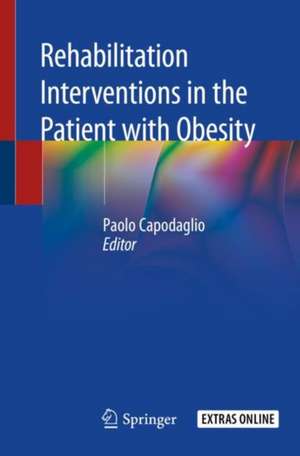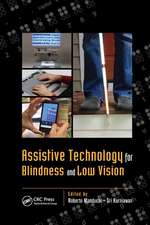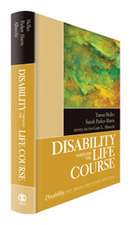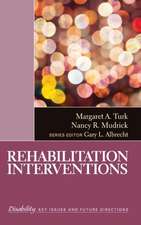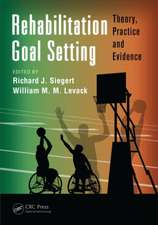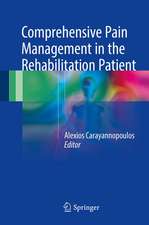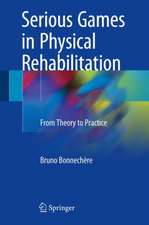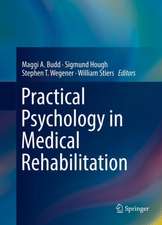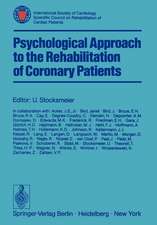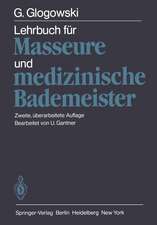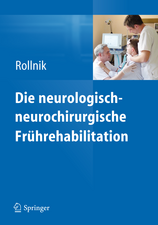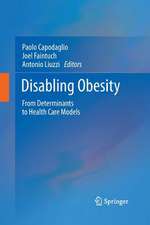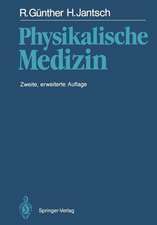Rehabilitation interventions in the patient with obesity
Editat de Paolo Capodaglioen Limba Engleză Paperback – 26 aug 2021
This book fills that gap, by gathering evidence-based chapters addressing not only the physiological limitations of obese subjects but also state-of-the-art, novel and specific treatment and training modalities suited for these patients. Though the content is primarily intended for rehabilitation practitioners (physiotherapists, nutritionists, dieticians, psychologists, PRM specialists), it will also benefit students and researchers engaged in this particular multidisciplinary field. The book’s ultimate goal is to increase professionals’ awareness of this multidisciplinary area, and to provide a pragmatic guidebook for those who want to engage in the rehabilitation of patients who are also obese.
| Toate formatele și edițiile | Preț | Express |
|---|---|---|
| Paperback (1) | 522.87 lei 38-44 zile | |
| Springer International Publishing – 26 aug 2021 | 522.87 lei 38-44 zile | |
| Hardback (1) | 655.32 lei 38-44 zile | |
| Springer International Publishing – 31 mar 2020 | 655.32 lei 38-44 zile |
Preț: 522.87 lei
Preț vechi: 550.39 lei
-5% Nou
Puncte Express: 784
Preț estimativ în valută:
100.05€ • 104.46$ • 82.80£
100.05€ • 104.46$ • 82.80£
Carte tipărită la comandă
Livrare economică 01-07 aprilie
Preluare comenzi: 021 569.72.76
Specificații
ISBN-13: 9783030322762
ISBN-10: 3030322769
Pagini: 255
Ilustrații: XIV, 255 p. 28 illus., 26 illus. in color.
Dimensiuni: 155 x 235 mm
Ediția:1st ed. 2020
Editura: Springer International Publishing
Colecția Springer
Locul publicării:Cham, Switzerland
ISBN-10: 3030322769
Pagini: 255
Ilustrații: XIV, 255 p. 28 illus., 26 illus. in color.
Dimensiuni: 155 x 235 mm
Ediția:1st ed. 2020
Editura: Springer International Publishing
Colecția Springer
Locul publicării:Cham, Switzerland
Cuprins
1. Physiological limitations and behavioural markers of physical activity in obesity.- 2 Which endurance training?.- 3 Which strength training?.- 4 Nutrition and exercise.- 5 Special considerations in sarcopenic obesity.- 6 Special considerations after joint replacement.- 7Respiratory exercises and non-invasive ventilation.- 8 Balance training.- 9 Motor control training.- 10 Treatment of lymphatic oedema.- 11 Whole body weight support: under water exercise.- 12 Whole Body Vibration.- 13 Whole body cryotherapy.- 14 Virtual Reality.- 15 Repetitive transcranial magnetic stimulation in obesity.- 16 Increasing physical activity with mobile technologies.- 17 Aids and rehabilitation devices for the obese patient.- 18 Continuum of care.
Notă biografică
Paolo Capodaglio received his M.D. degree from the University of Pavia, Italy, in 1988 and his specialization in Physical Medicine and Rehabilitation (PMR) from the same University in 1991. After graduating, he worked as a PMR specialist at different hospitals of the Fondazione Maugeri Institute. He then spent time working abroad (1992 University of Dusseldorf, Germany; 1995-1996 National Institute of Occupational Health, Copenhagen, Denmark), in the course of which he began collaborations with several research groups in Europe and the US. He has also taught at the Medical School of the University of Brescia, Italy. At present, he is Director of the PMR Unit (80 inpatients) and the Laboratory for Research in Biomechanics and Rehabilitation at the Istituto Auxologico Italiano IRCCS in Verbania-Piancavallo, Italy. He has devoted much of his research to functional evaluation in ageing and pathological conditions (spinal cord injuries, musculoskeletal disorders, obesity and metabolic conditions), has published more than 200 papers in peer-reviewed journals and 6 books, and serves as reviewer for several indexed journals.
Textul de pe ultima copertă
This book has a unique focus on physiotherapy techniques and training methods that are ideally suited for the obese patient. Despite its related comorbidities and disability, not to mention its pandemic proportions, the impact of obesity on individual capacities and rehabilitative outcomes is often neglected by physiotherapists and physical trainers alike. The number of disabled subjects who are also obese is now increasing worldwide, as is the rate of obese patients admitted to post-acute rehabilitation units. The effective rehabilitative treatment of these patients involves special multidisciplinary considerations.
This book fills that gap, by gathering evidence-based chapters addressing not only the physiological limitations of obese subjects but also state-of-the-art, novel and specific treatment and training modalities suited for these patients. Though the content is primarily intended for rehabilitation practitioners (physiotherapists, nutritionists, dieticians, psychologists,PRM specialists), it will also benefit students and researchers engaged in this particular multidisciplinary field. The book’s ultimate goal is to increase professionals’ awareness of this multidisciplinary area, and to provide a pragmatic guidebook for those who want to engage in the rehabilitation of patients who are also obese.
Caracteristici
Broadens readers’ understanding of evidence-based physiotherapy techniques and exercise training methods for the obese patient Presents a pragmatic approach supported by evidence Written by experts who are actively engaged in the rehabilitation of obese patients
